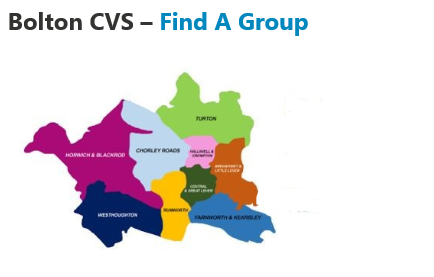Resources
For Patients and the Public - a resource list
Produced by the Bolton Health Information Partnership (updated Dec 2019).
Based on a workbook produced by Dave Ashbey, Doncaster and Bassetlaw NHS FT.
This resource list has been designed with library and information staff in mind and can be used to:
- Raise awareness of high quality, reliable web sites providing health related information
- Increase the confidence of staff to be able to answer health related questions quickly and accurately
so that patients and the public:
- Have answers to health related questions answered quickly and accurately
- Can be confident that the answers they receive come from high quality, reliable sources of health related information
- Increase their awareness of high quality, reliable sources of health related information
Health Information Week
Health Literacy
A National Perspective
Health literacy is the ability to access, understand, appraise and use health information to make health-related decisions. In the UK, we know from work by Gill Rowlands that 43% adults struggle with text-based health information; this rises to 61% if the health information includes numbers as well as text. Click here to search for the figure for Bolton.
Individual health literacy also varies. If someone has just had a significant diagnosis, then their ability to comprehend information will be reduced.
As people live longer with multiple health conditions, they need to be able to make the treatment choices that are right for them, and to understand how to use self-management techniques or take medications.
Health and social care staff need to be aware of health literacy issues to support access to information. Techniques such as “TeachBack” and “chunk and check” can increase understanding and the ability of individuals to own decisions about their health and wellbeing.
You can learn more about health literacy with this free elearning module, which takes about 30 minutes to complete.
At the end of the session, you will know why health literacy is important and how to use some simple techniques including TeachBack, chunk and check, using pictures and simple language to improve how you communicate and check understanding with others. After each section you can complete an action plan of how you intend to use the techniques in your practice. You can use this plan as evidence of your learning in your appraisal or professional portfolio.
Learning objectives:
- List the benefits of health literacy to individuals and services
- List health literacy tools and techniques
- Explain how to use health literacy tools and techniques
- Describe the impact of health literacy on people’s health choices
- Create a personal action plan to be health literacy friendly
References:
- Rowlands, G. et al. A mismatch between population health literacy and the complexity of health information: an observational study. British Journal of General Practice 2015;65(635):e379-86. doi: 10.3399/bjgp15X685285. https://www.ncbi.nlm.nih.gov/pubmed/26009533
- Mayor, S. Nearly half adults in England don’t understand health information, study indicates. British Medical Journal 2012;345:e8364 https://www.bmj.com/content/345/bmj.e8364
Health Literacy for Bolton
The University of Bolton has developed a Health Literacy section in its award winning academic skills portal LEAP Online. The section has been developed based on Health Education England’s e-learning module but with a wider context in mind. It’s aimed to create awareness of what health literacy is and it’s importance to everyone. As with all content in LEAP Online it’s accessible for anyone with the exception of the assessments which students at the University undertake to earn digital badges.

